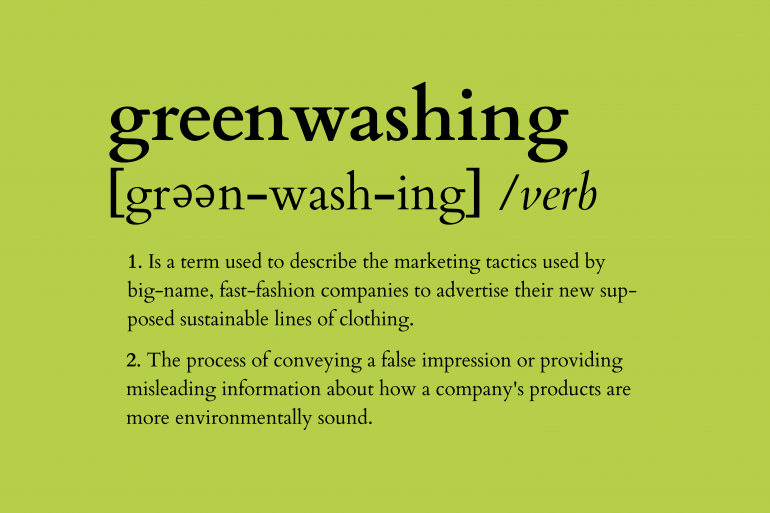With growing awareness of the planet’s dwindling health, sustainable fashion is all the rage. Fast-fashion companies have received backlash for their use of synthetic materials and the treatment of their workers as well as the level of waste they produce but there is another issue that has not been covered. “Greenwashing” is a term used to describe the marketing tactics used by big-name, fast-fashion companies who attempt to market as sustainable but aren’t making any actually sustainable changes to their production.
Fast fashion brands like Zara and H&M are the most well-known examples of fake sustainable initiatives. Zara advertises as using recyclables and sustainable products (like wool, cotton, etc.). H&M started their own campaign of putting recycling bins in each of their stores where you can give your old clothes from any brand to receive a discount on their clothes.
What they don’t say in their advertisements is that only about 4% of the fabric used in a garment at Zara is made from recyclables. And because you can receive a discount for giving in your clothes, it encourages more shopping which starts the process all over again.
The reason why greenwashing exists is because there are no specific regulations that classify sustainability. Most of the clothing being sold at fast-fashion companies is made of nylon, spandex and/or polyester, all of which are not biodegradable.
Because each of these pieces takes up so much water and oil to produce, not only is the effects of making the garment harmful to the environment, but the production process is damaging as well. There are only a few ways in which these clothes are disposed of. They are either burnt, which releases toxins into the air, or they are sent to a landfill. This false advertisement plays to the naivety of the average consumer by creating a fictitious narrative of sustainability.
Since every company must release an annual report, all of this information is available to the public, but Inditex, the company that owns Zara, issued a 400 page document outlining their sustainable practices, but the document is full of false promises and confusing dialogue. On page 28, they claim that 88% of the waste they produce is reused or recycled. But later, it states that the 88% does not include their factories or their stores which begs the question of what actually is being recycled.
While all of this is daunting, there is a silver lining. We are starting to see a change in the way the consumer thinks about clothing, and this is evident in companies like Forever 21 filing for bankruptcy. People are starting to realise that they prefer quality over quantity.
Words by Emma Karp

